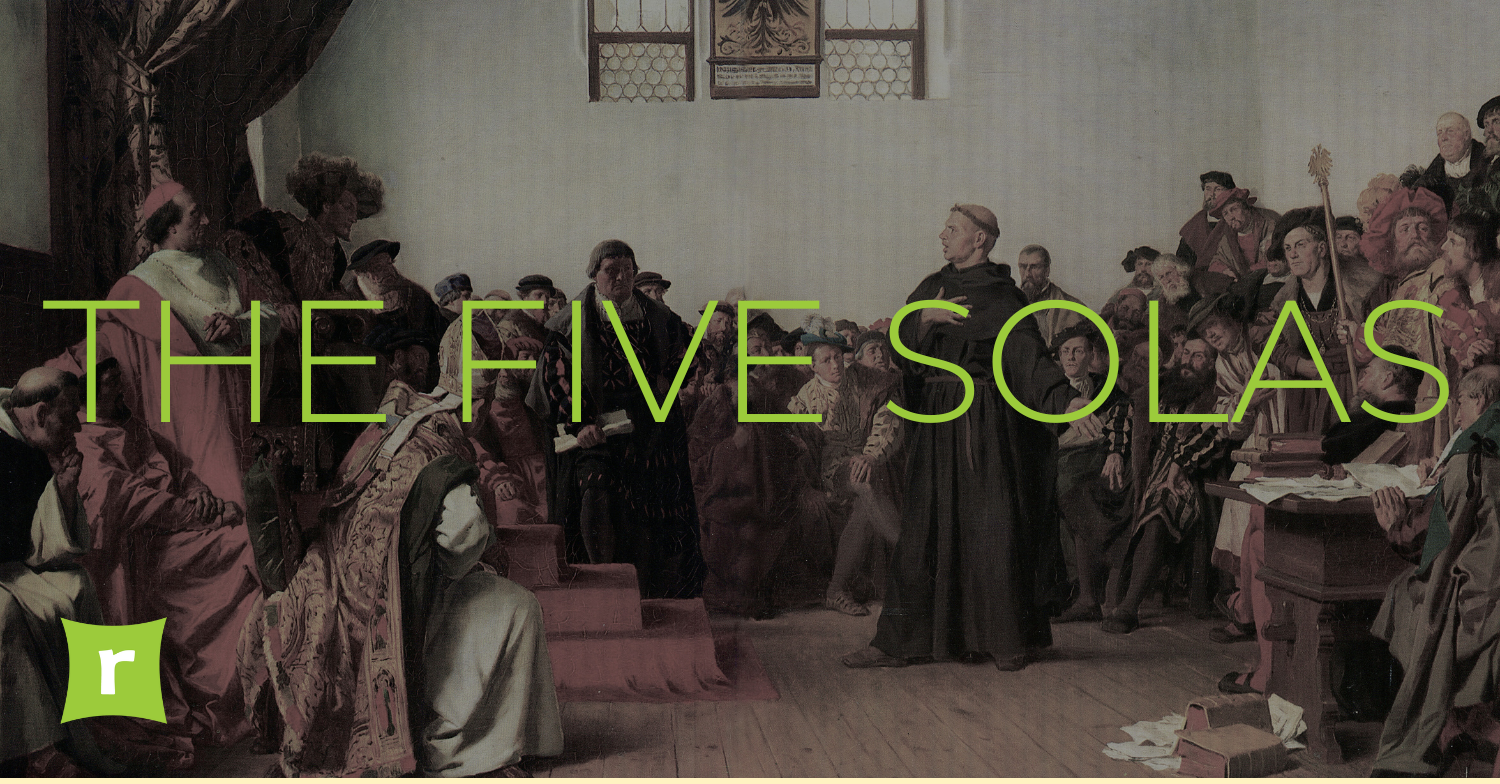The Five Solas in James


Many of you know that today is a helpful holiday, Reformation Day, a day to remember the fruit for the Church that was produced from the Reformation. Some of the fruits have been summed up in The Five Solas (Latin for “alone”) of the Reformation. These five truths help the Church remember the fundamentals of Christian life. And, yes, you can even see allusions to these solas in our study of James.
Sola Scriptura — Scripture Alone
Scripture alone is the conviction that the Bible, God’s Word, is our final authority for faith and life. While James does explicitly reference “scripture,” he clearly believes that there is a “law” and a “word” that is transformational.
Christians are given new birth by the “word of truth” (James 1:18), an allusion to Jesus and His Gospel word. Christians have this word implanted in them (James 1:21). And, Christians must obey this word (1:22).
This word is also described as “the perfect law, the law of liberty” (James 1:25), and the “royal law,” the law that members of God’s kingdom live by (James 2:8) (see also James 2:9–12, 4:11).
In other words, this word/law is incredibly vital for the Christian!
Now, ask yourself, where is this word/law to be found? The clear answer is the Scriptures, the Word of God. This is incredibly clear when you consider the absence of Scripture.
What truths about Jesus are available without the Bible? Anyone you have heard the word/law from, any teacher, any source, relied upon Scripture if their words are reliable. And, no words about Jesus are reliable if not reliant upon Scripture. So, if we affirm Scripture Alone, the Bible is our final authority for faith and life.
Solus Christus — Christ Alone
Christ alone is the belief that there is only one Savior of the world, and it’s not you. James reminds his readers of this when he recalls to them whom they belong to. “My brothers…[who] hold the faith in our Lord Jesus Christ, the Lord of glory.” (James 2:1). James does not call us to trust in ourselves or find salvation in ourselves. No. We look to Jesus.
Sola Fide — Faith Alone
Faith alone is connected to Solus Christus. Faith alone explains how we relate to Jesus. We depend by faith upon Jesus alone, not by works.
Now some may argue that James makes that exact opposite claim. In the classic text on faith and works (James 2:14-26), James seems to argue that we are saved BY OUR WORKS and not by faith alone (James 2:24). However, a close examination of the whole passage shows that James is trying to define real faith. Real faith is shown by works. A kind of faith that has no works is not real faith at all.
So, yes, in James we see a picture of faith alone, a real faith that results in works.
Sola Gratia — Grace Alone
Grace alone is the reminder that what we get from God is gift, not wages. This is connected to Solus Christus and Sola Fide in that what we get from Jesus by faith is NEVER considered something owed to us by God. No. What we get from God is a gift; it's called grace. “...he gives more grace.” (James 4:6). This reinforces the truth that our works do not save us. If I could do a work to earn salvation, then God would be indebted to me. BUT, GOD IS INDEBTED NO ONE.
Soli Deo Gloria — Glory to God Alone
Soli Deo Gloria is the reminder that all the good that comes to us and flows out of us (salvation, good works, etc.), all of it is for the glory of God. This idea is implied EVERYWHERE throughout James.
For example, a common reminder in James is that we should be humble/meek (James 1:21, 3:13, 4:6, 4:10). Why? The blatant answer is that we will be exalted. We humble ourselves because God exalts those who humble themselves.
Now, why does God exalt us? Is it for our own praise? No. God exalts us because he is a God of sovereign jealousy. He yearns jealously for His creation. He is not jealous that they would be exalted for their own glory. No, God is perfectly jealous that His people would see Him for who He is and give glory to Him. The result of His sovereign jealousy is a saved people who are exalted to praise Him and judged enemies who are made low because they failed to praise Him for who He is.
Happy Reformation Day!